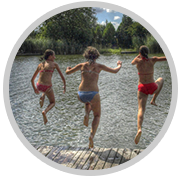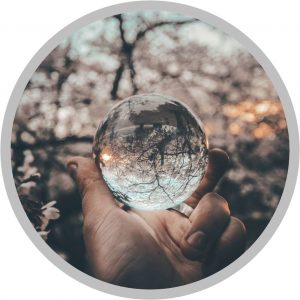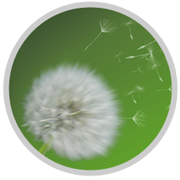Below is a preliminary overview of the topics, dates and some of the common course activities that are scheduled so far. More activities might be added for some topics. In addition to common course activities you will have regular online meetings in your study groups (PBL groups). These meeting times will be decided by the group members together at the start of the course.
|
 Getting started Getting started
12 – 18 February
|
During this first week the focus is to familiarize yourself with the ONL learning spaces. You will be encouraged to share expectations, background knowledge, experience and practice and begin to build relationships.
 ONL help desk – drop-in video meeting times where one of the members of the course team will be waiting to help you in case you have questions about how to get started. ONL help desk – drop-in video meeting times where one of the members of the course team will be waiting to help you in case you have questions about how to get started.
All times CET and meeting link is https://kau-se.zoom.us/my/onlhelpdesk. You will need to enter ONL241 for admittance.
- Monday 12 February 10:00-11:00, Tuesday 13 Feb 10:00-11:00 + 13:00-14:00, Wednesday 14 Feb 11:00-12:00, Friday 16 February 12:00-13:00
 Introductory meetings for institutional groups – organised by each institution Introductory meetings for institutional groups – organised by each institution
 Introductory meetings for Open learners – registered open learners are invited to two optional and electable sessions Introductory meetings for Open learners – registered open learners are invited to two optional and electable sessions
- Tuesday 13 Feb 16:00 – 17:00 (CET)
- Wednesday14 Feb 11:00 – 12:00 (CET)
|
|
 Connecting Connecting
19 – 25 February
|
During this important week the focus is to to connect with peers and facilitators and to form groups.
 Connecting webinar: Monday 19 February, 10:00-11:30 (CET) Connecting webinar: Monday 19 February, 10:00-11:30 (CET)
Course welcoming and brief introduction – an opportunity to meet and connect with your PBL group and facilitators.
Please use a headset and your webcam!
|
 1. Online participation & digital literacies 1. Online participation & digital literacies
26 February – 10 March
|
Topic 1: Online participation & digital literacies
During this topic, we will explore together important literacies to survive and thrive in the digital age as learners and educators. We will also discuss online participation and your digital footprints. You will be encouraged to reflect on your digital presence and identity as well as your experience of digital consumption, communication, collaboration, and creation.
 Webinar: Wednesday 28 February 13.00-14.00 CET – Special guest: David White Webinar: Wednesday 28 February 13.00-14.00 CET – Special guest: David White
 Webinar: Wednesday 6 March 13.00-14.00 CET – workshop on Individaul reflection spaces Webinar: Wednesday 6 March 13.00-14.00 CET – workshop on Individaul reflection spaces
|
 2. Open Learning – sharing and openness 2. Open Learning – sharing and openness
11 – 24 March
|
In this topic, we will explore the benefits and challenges of openness in education. We will look at issues around copyright and in particular the open licensing of content (Creative Commons) and how this opens up new opportunities for collaborative learning and development. Sharing and reusing OER (Open Educational Resources) and the consequent development of OEP (Open Educational Practices) will also be examined.
 Webinar: Wednesday 13 March 11.00-12.00 CET – Special guest: Maha Bali Webinar: Wednesday 13 March 11.00-12.00 CET – Special guest: Maha Bali
 Webinar: Wednesday 20 March 13.00-14.00 CET – workshop on Creative Commons licenses Webinar: Wednesday 20 March 13.00-14.00 CET – workshop on Creative Commons licenses
|
|
 Reflection week Reflection week
25 – 31 March
|
We’re halfway through the course and this week gives you time to reflect, catch up and consolidate what you have learned so far. |
|
 3. Learning in communities – networked collaborative learning 3. Learning in communities – networked collaborative learning
1 – 14 April
|
In this third topic, we will explore aspects of collaborative learning in relation to networked online spaces for learning. Interacting and learning together with peers in different formats has become an integral part of student-centered education. Technology offers new possibilities for interaction and forming new kinds of social networks, including learners as well as facilitators and experts – but also offers challenges, such as keeping focus on learning processes, not tools, in online environments. You will be encouraged to reflect on the meaning of networked collaborative learning and the development of learning communities in relation to PBL and building personal learning networks and environments for peer support and your informal learning.
 Webinar: Wednesday 3 April 12.00-13.00 CEST – Special guest: Hróbjartur Árnason. Webinar: Wednesday 3 April 12.00-13.00 CEST – Special guest: Hróbjartur Árnason.
 Webinar: Wednesday 10 April 12.00-13.00 CEST – Special guest: Hróbjartur Árnason. Webinar: Wednesday 10 April 12.00-13.00 CEST – Special guest: Hróbjartur Árnason.
|
|
 4. Design for online and blended learning 4. Design for online and blended learning
15 – 28 April
|
For this topic, we turn the focus from participation to design for learning, including scaffolding and facilitation. You will look at aspects of Learning Design and discuss different pedagogical aspects to be considered when creating good learning environments using the Community of Inquiry and other frameworks. You will also be able to discuss the concept of blended learning and how to achieve the right balance for your course.
 Webinar: Does AI have a role? – Wednesday 17 April 11-12 CEST Webinar: Does AI have a role? – Wednesday 17 April 11-12 CEST
 Webinar: Generative AI and course design – Thursday 24 April 11-12 CEST Webinar: Generative AI and course design – Thursday 24 April 11-12 CEST
|
|
 5. Lessons learnt – future practice 5. Lessons learnt – future practice
29 April – 3 May
|
Topic 5: Lessons learnt – future practice
During our concluding weeks, peers and facilitators will share and reflect on learning experiences from ONL and look ahead to how this feeds into our present and future practice. What effect has the learning experience from this course had on your development of personal learning networks and your own professional practice? What were the benefits and what were the challenges? What are the next steps?
 Final webinar: Friday 3 May 10-11:30 CEST Final webinar: Friday 3 May 10-11:30 CEST
|
Please check your local time:
http://www.timeanddate.com/time/map/